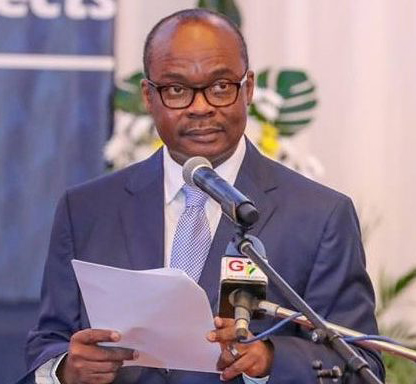Business confidence in the economy, as measured by the latest edition of a periodic survey of business owners and managers sentiments, has shown some degree of a rebound in confidence and optimism about the performance of the domestic economy.
This is according to Bank of Ghana’s (BoG) latest Business Confidence Survey data released on Friday.
The survey, which forms part of the central bank’s real sector indicators, revealed that its business confidence index as at December last year inched upwards to 97.3 percent, after it had dropped to 95.1 percent in October from 101.4 percent recorded in June 2018.
This economic indicator measures the amount of optimism or pessimism that business managers feel about the prospects of their companies, as well as providing an overview of their perceptions state of the economy.
AGI Business Barometer
In line with the central bank’s data for the third quarter of 2018, the Association of Ghana Industries (AGI) business barometer for the third quarter of 2018, showed a decline in business confidence from 104.8 percent to 95 percent, representing a 9.35 percentage points drop.
This development, according to the Association clearly indicated that business were suffering. However since AGI has not yet released the results of its fourth quarter business barometer it is yet to be seen whether its members have also experienced renewed confidence and optimism with regards to their business prospects since then.
The Association itself has pointed to the cedi’s significant depreciation against major international trading currencies which continued into the second half of the year, creating some uncertainties in the business arena regarding the stability of the cedi and the consequent operating costs they incur.
Indeed, the cedi’s fall has led to significant increases in business operating costs, especially for enterprises that are largely import dependent, complicating product pricing decisions, with some businesses opting for inventory replacement pricing which tends to be self-fulfilling with regards to fanning inflationary expectations.
Consumer Confidence
For the fourth quarter of 2018, consumer confidence as measured by the BoG’s Consumer Confidence Index, showed some increased optimism among households, by recording a marginal increase of 6 percentage points to reach 98.3 percent, after recording a consistent decline to 92.3 percent during the earlier part of the year.
The Consumer Confidence Survey reflects prevailing consumer sentiments as expressed by households and likely developments in those sentiments for the months ahead.
Instructively, both business and consumer confidence, as measured by the BoG’s index’s rose during the last quarter of 2018, suggesting that increased domestic production would be met by expanding demand for the products being offered.
The upsurge in both business and consumer confidence reflects increased economic activity, indicating actual economic growth. However both the business and consumer indexes for the last quarter of 2018 fell short of the levels recorded in the last quarter of 2017, at 99.7 and 107.5 percent respectively indicating that optimism and confidence among both businesses and households are still lower than what they were a year ago.
Nevertheless, BoG Governor Dr Ernest Addison has expressed confidence that pressures underlying the falling consumer inflation are “well-contained” and the central bank’s measures of core inflation point to a general easing, which is further underpinned by “well-anchored inflation expectations of both consumers and businesses.”
Composite Index
The Bank’s updated Composite Index of Economic Activity (CIEA) also picked up, although at a slower pace than in 2017. The CIEA recorded an annual growth of 3.1 percent in November 2018, compared with 8.3 percent for the same period of 2017.
This confirms data computed by the Ghana Statistical Service, that real Gross Domestic Product growth was 6.1 percent year on year as at September 2018, down from 9.1 percent over the previous corresponding period, while excluding oil it was 5.9 percent, down from 6.1 percent over the corresponding period of 2017. Overall GDP growth for 2018 is projected to grow by 5.6 percent, well below the 8.5 percent achieved in 2017, but government is targeting a rebound to 7.6 percent in 2019.
Source: Goldstreet Business




